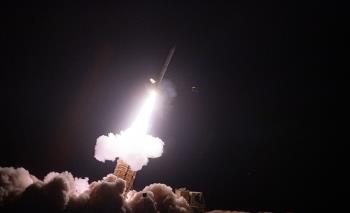Alwaght- Iran's Oil Minister Bijan Zanganeh said on Wednesday American president cannot reduce Iran's oil export and simultaneously prevent the price of crude from rising, suggesting that Donald Trump should stop interfering in the West Asia if he wants cheap oil.
“Mr Trump is trying to seriously reduce exports of Iran’s oil and also ensure the price of oil does not go up, but these two cannot happen together,” Iranian Students’ News Agency cited Zanganeh as saying, Reuters reported.
“If he wants the price of oil not to go up and the market not to get destabilized, he should stop unwarranted and disruptive interference in the West Asia and not be an obstacle to the production and export of Iran’s oil.”
Trump, not the Organization of the Petroleum Exporting Countries, is behind the recent rise in prices, Zanganeh said.
“Trump blames OPEC for what he has created and caused: the rise of the price of oil and disturbance in the market.”
OPEC members do not have the capacity to increase production, Zanganeh said.
Oil prices hit a four-year high of $81.48 a barrel on Tuesday after OPEC and Russia appeared to reject calls from the US to increase production amid looming sanctions against Iranian crude oil exports.
US President Donald Trump slammed the Organization of the Petroleum Exporting Countries (OPEC) last week, saying the 15-member oil cartel should keep crude prices low because of the military protection the US provided for the region.
"We protect the countries of the Middle East, they would not be safe for very long without us, and yet they continue to push for higher and higher oil prices! We will remember. The OPEC monopoly must get prices down now!" Trump wrote on Twitter.
OPEC and its biggest oil-producer ally outside the group, Russia, effectively rebuffed Trump's demand to lower prices on Sunday and failed to provide answers on how they would counter falling supplies from Iran.
According to the Wall Street Journal, Saudi Arabia, the world's top oil exporter has increased production to around 10.4 million barrels of crude per-day over the past two months.
But according to the American newspaper, the kingdom's state-run oil giant Saudi Arabian Oil Co, known as Aramco, doesn't have the capacity to meet future demand if Iran oil exports decreases.
Citing oil traders, the WSJ said with the combination of sanctions on Iranian oil and supply limitations in Saudi Arabia, there could be a "price spike, likely $90 to $100" a barrel.
Commodity traders Trafigura and Mercuria have also warned that Brent crude prices could rise to $90 a barrel by December and pass $100 in early 2019.



























